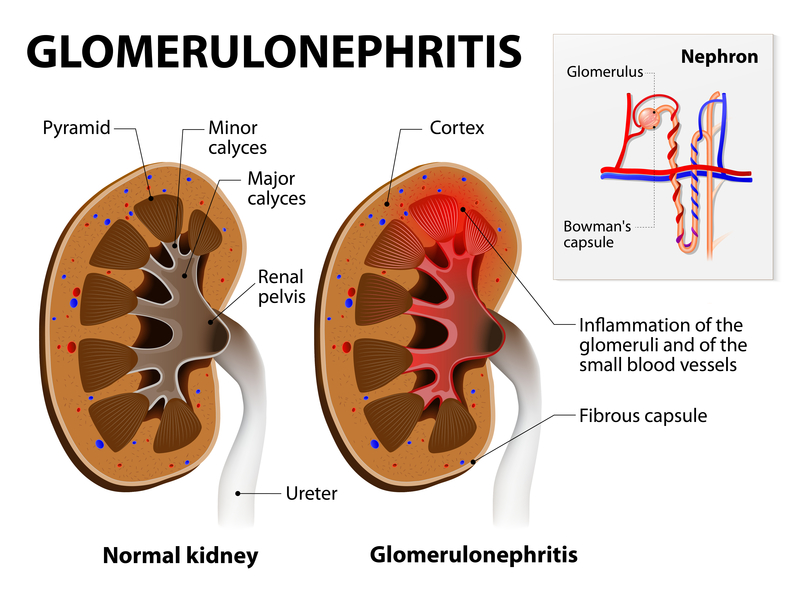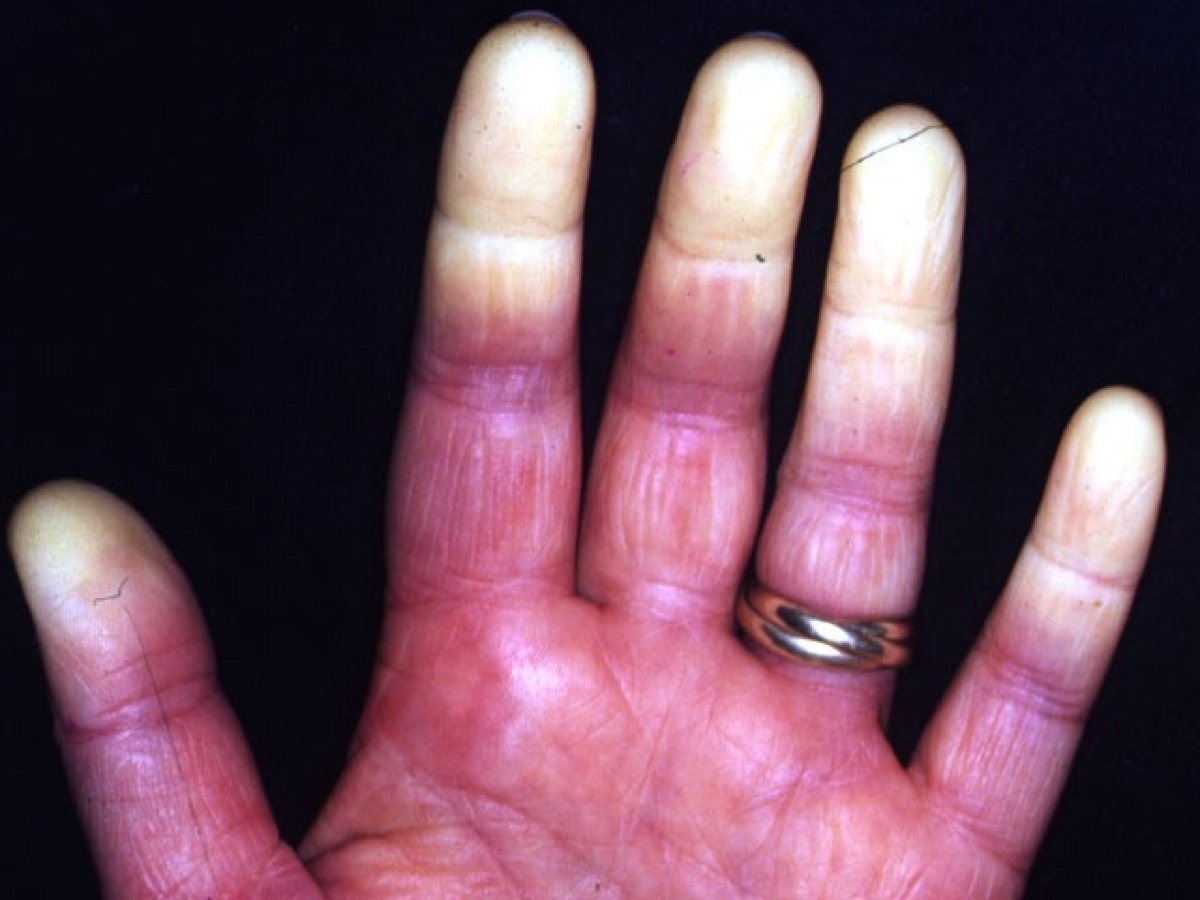Recognizable Symptoms Of Lupus
Lupus is an autoimmune disease in which the immune system mistakenly attacks various parts of the body, including the skin, joints, and various other organs. Over sixteen thousand new cases of lupus develop each year, and five million people worldwide suffer from the disease. It occurs when the immune system creates antibodies that attack and destroy healthy tissue causing pain, damage, and inflammation. Women of color are two to three times more likely to develop the disease than any other gender or race. The following are some of the more common symptoms of lupus.
Fever

Developing a low-grade fever for no apparent reason is a symptom of lupus. As the fever does not typically reach over one hundred and one degrees Fahrenheit, you will not need to seek immediate treatment, but make sure you keep your doctor informed of how long the fever lasts and any other symptoms that accompany it. A low-grade fever is a sign of inflammation in the body, which is a classic symptom of lupus. It could mean your body is experiencing an infection or flare-up.
Fatigue

Fatigue is a relatively common symptom of most autoimmune diseases. According to the John Hopkins Lupus Center, approximately ninety percent of people with lupus reported experiencing some level of fatigue. If you begin to notice that you feel tired during the day even after a full night’s sleep, talk to your doctor about your symptoms. Going to bed an hour earlier each night might help give you the boost you need to get through the next day.
Thyroid Problems

Some people with lupus will also develop autoimmune thyroid disease. Your thyroid gland is responsible for secreting and storing hormones that control almost every metabolic process in the body. Hypothyroidism occurs when the thyroid gland does not produce enough hormones. Symptoms may include weight gain, dry skin and hair, moodiness, and problems concentrating. In rare cases, thyroid disease may be linked to an overproduction of hormones, which may cause weight loss, diarrhea, and anxiety, among other symptoms.
Hair Loss

Hair loss and thinning hair are usually one of the first signs of lupus. It occurs due to inflammation of the scalp and skin. Most of the time, hair will start to thin out slowly, but some people experience chunks of hair falling out in the shower. You may also notice thinning of hair in other areas of your body such as your eyebrows, beard, or eyelashes. Talk to your doctor if your hair feels brittle, ragged, or starts to break easily as this might be a sign of lupus.
Nephritis

People with lupus may experience nephritis, or inflammation of the kidneys, which makes it harder for them to filter waste and toxins from the blood. The Lupus Foundation of America suggests that nephritis may develop five years after first being diagnosed with the disease. Symptoms may include high blood pressure and swelling in the feet and lower legs. Blood in urine is also common and so is going to the bathroom more frequently at night. If urine is darker than normal, this could be a sign of nephritis.
Problems Breathing

If you are suddenly experiencing problems breathing, this may be a sign of lupus. Lupus affects the pulmonary system by causing inflammation of the lungs and blood vessels, which can restrict oxygen flow to the rest of the body. Breathing difficulty may be one reason for unexplained fatigue. You may also notice it feels harder to breathe due to the increased pressure on the diaphragm. Some people with lupus experience pleuritic chest pain when they try to breathe. Lupus can also shrink the lungs over time.
Digestive Issues

Occasional heartburn, acid reflux, and other gastrointestinal problems are common in lupus. Taking supplements to support the digestive system such as probiotics and digestive enzymes may help with digestion. They will also contribute to boosting the immune system and restore the healthy bacteria in the gut, which should reduce the length of most flares. Antacids are available to control the burning sensation in your esophagus. Avoid lying down after meals. Cutting your meals in half also helps make sure they are easily digested.
Swollen Joints

Inflammation is a classic symptom of lupus. If you experience visible stiffness and pain in your joints or visible swelling, talk to your doctor. Inflammation may start out gradual at first and become worse during a full flare-up. Inflamed joints are often associated with arthritis, so be sure to keep track of any other symptoms you are experiencing to help with a proper lupus diagnosis. Tart cherry juice and turmeric supplements work wonderfully for joint inflammation.
Sjögren’s Syndrome

Some lupus patients may develop another autoimmune disease known as Sjögren’s Syndrome, which is characterized by dry mouth and dry, gritty eyes. Sjögren’s Syndrome causes inflammation and disruption to the salivary and lacrimal glands responsible for the production of saliva and tears. According to the National Institute of Neurological Disorders, Sjögren’s Syndrome affects up to four million people in the United States. Women who are diagnosed with lupus may also experience dryness of the vagina.
Skin Rash

Skin rashes are one of the most prominent symptoms of lupus. Approximately fifty percent of people with lupus experience a butterfly-shaped rash over the bridge of the nose covering both cheeks on the face. The rash may occur just before a flare-up or after overexposure to sunlight. People with lupus may also develop lesions on other parts of their body, such as arms, legs, neck, stomach, back or feet. These lesions usually do not itch, and they are not contagious but can they be embarrassing.
Mental Health Problems And Seizures

A study from the Canadian Institute of Health Research found that the prevalence of mental health issues in those with lupus has significant implications for future medical research and individual management of the condition. Many of these neurological diseases occur before the diagnosis of lupus. The results of the study could mean that some cognitive disorders may create ideal chemical conditions for lupus to develop, or that individuals who have Lupus are also affected by some mental health conditions more frequently, either before, or after diagnosis. The most prevalent neurological conditions within those with lupus are headaches, mood disorders, and anxiety or depression. Seizures also occur in between five to ten percent of patients with lupus at some point in their lifetime. Seizures are one of the eleven criteria used to diagnose lupus.
Chest Pain

Chest pain is also another common symptom of lupus and can also be called myocarditis. Myocarditis is the inflammation of the muscle tissue in the heart, which causes pain and irregular or a rapid heartbeat. This symptom can also be mistaken for blood clots in the lungs. Shortness of breath is also a frequent occurrence in those with lupus who suffer chest pain. Many with this type of chest pain will fear the worst and rush to the hospital, but once the pain is identified and managed, it may not be as dangerous as it first seems. Lupus-related pain can also affect the entire body and headaches, joint pain, and cause fever and other viral infection like symptoms. Adequate treatment of lupus will lessen the likelihood of frequent chest pains.
Persistent Nausea And Vomiting

Patients with lupus can also become prone to frequent bouts of nausea and even vomit. This symptom can be caused by a variety of reasons including a build-up of fluids in the abdomen, environmental and lifestyle factors, and other medical conditions that can develop alongside lupus, such as irritable bowel syndrome. Non-steroidal anti-inflammatory drugs are a common cause of constipation, diarrhea, nausea, and vomiting. This type of medication for lupus can also cause stomach ulcers to develop, which will cause uncomfortable pain in the abdomen. The muscle contractions that control the digestion of food may become inefficient, or the medication is taken for lupus, leading to the poor health of the gastrointestinal tract.
Loss Of Appetite And Involuntary Weight Loss

Lupus can sometimes cause involuntary weight loss due to the loss of appetite; this can be due to the medication was taken or even the lupus disease itself. Autoimmune thyroid disease is not uncommon in those with lupus, and this condition will have major effects on weight and metabolism. A compromised thyroid can even cause damage to the brain, kidneys, and liver. Alternative medications for lupus can and should be discussed with a health professional if the lack of appetite is a primary concern. Some with lupus will experience lack of appetite and involuntary weight loss due to the disease itself and not because of the medication or treatment process. It is essential to make this distinction by visiting a health professional and having tests done.
Raynaud's Phenomenon

Raynaud's phenomenon is named after a French physician, Maurice Raynaud, who discovered the condition in a young woman in 1862. Individuals with Raynaud's phenomenon will experience significant sensitivities in the change of temperature in the hands and feet. This sensation is accompanied by pain, numbness, tingling, or a red or blue coloring of the affected area. Lupus-related Raynaud's phenomenon is a consequence of the inflammation of the nerves or blood vessels and can be triggered by stress, as well as temperature changes. The lips, nose, or chin may also be affected by Raynaud's phenomenon in those with lupus. The restricted blood flow may be the result of damage caused by lupus and the inflammation associated with the condition. Inflammation is known to inflate the walls of the arteries inside the body which can cause less blood to flow through them; consequently, this causes the fingers, toes, or facial area to be affected by temperature change.